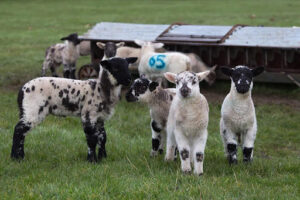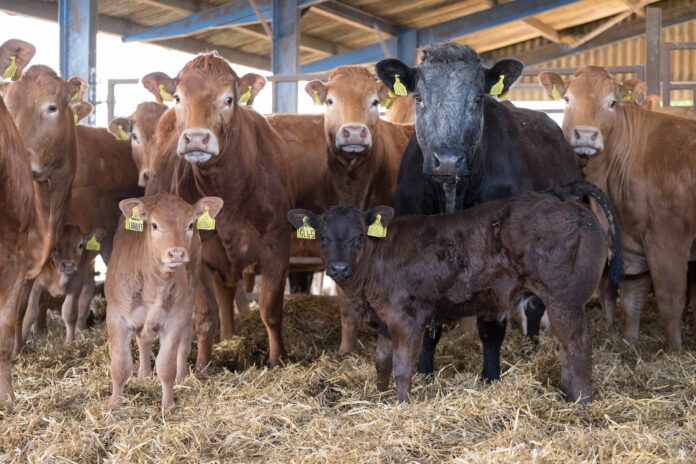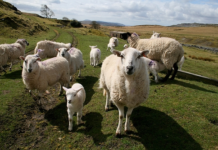MILTON KEYNES, UK, 12th March 2024 – Cattle and sheep producers are being encouraged to guard against coccidiosis in growing spring born calves and lambs. Youngstock are at particular risk of the parasite-born disease at this time of year once any passive immunity gained from colostrum starts to wear off.
“Thanks to antibodies gained through ingesting colostrum early in life, calves and lambs initially acquire some passive immunity to the parasite. But this protection is short-lived, leaving young animals particularly susceptible to infection as they grow and develop as the weather warms up,” said MSD Animal Health veterinary adviser Dr Kat Baxter-Smith.
In spring born calves, disease can occur at any age from 3 weeks to 6 months old and in lambs, maternal immunity wanes at 4-8 weeks of age.
Dr Baxter-Smith explained that clinical coccidiosis is caused by a build-up in the rearing environment of oocysts produced by the Eimeria parasite.
“Susceptible growing calves and lambs become infected by ingesting these oocytes when they lick contaminated objects in their rearing environment or ingest feed or water contaminated by faeces. Once taken into the body in sufficient numbers, the oocysts hatch and the parasites invade and destroy intestinal cells. Infection often leads to diarrhoea, weight loss and poor growth rates.”

She explained that alongside good hygiene practices, anticoccidial treatments often have to be used strategically to manage the disease threat on many cattle and sheep units as a consequence.
“This allows youngstock some level of exposure to the parasite so that they gain longer term immunity, but also removes the parasite before it is able to impact on productivity and further contaminate the environment.
“Oral drenches such as Vecoxan® are generally the most convenient way of ensuring that each calf or lamb receives the correct dose at the right time.
“Easy-to-administer as a single oral dose, Vecoxan® is a flexible coccidiosis management solution that can be used in calves and lambs of any weight, in any management system and without any environmental restrictions or meat withdrawal period1. In addition, its strategic use with all young animals in a group allows natural immunity to develop in your youngstock and there’s no need to dilute manure from treated animals before spreading on fields1.”
However, Dr Baxter-Smith added that it is important to recognise that coccidiosis is only one of a number of causes of diarrhoea in calves and lambs. Farmers unsure about a particular disease management situation, should contact their vet for advice.
Help keep news FREE for our readers
Supporting your local community newspaper/online news outlet is crucial now more than ever. If you believe in independent journalism, then consider making a valuable contribution by making a one-time or monthly donation. We operate in rural areas where providing unbiased news can be challenging. Read More About Supporting The West Wales Chronicle

























